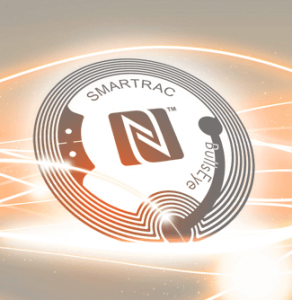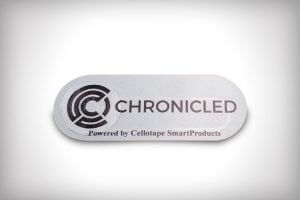
Smartrac, the world’s leading supplier of radio-frequency identification (RFID) products and Internet-of-Things (IoT) solutions, has launched an integrated document verification and authentication solution which utilizes Factom‘s technology to put paper-based documents on a public blockchain.
Called dLoc, the new solution combines NFC technology, IoT capabilities and blockchain’s security, allowing for the reliable authentication of any document, from birth certificates, land titles, to medical records.
“dLoc is the first practical document authentication system that utilizes the Factom Blockchain to bridge the data integrity gap between the physical and digital world,” said Abhi Dobhal, VP Business Development at Factom.
“We now have a reliable way to secure information on paper-based documents with digital data using blockchain technology. dLoc’s data and identity authentication solution holds great promise for both public and private sectors where paper-based documents are widely used.”

dLoc relies on Smartrac’s proprietary IoT platform Smart Cosmos, the company’s NFC transponders, and blockchain technology provided by Factom which allows to encrypt, record and secure Smart Cosmos entries into a public blockchain.
The solution uses a printed barcode representing a number which links personalized data to the document itself. A dLoc sticker is applied to the document. The sticker contains a Smartrac BullsEye NFC inlay within which is integrated a security chip chosen from a range of different chip platforms with storage capacities between 1kB and 64kB.
Document data is married with the unique ID of the NFC tag to create a 32-bit hash value, which is only recognizable by the issuing agency using a private key.
Once the hash value is stored in Smart Cosmos and backed up in a public blockchain, the document with the dLoc sticker can be verified using a desktop reader or a mobile app on an NFC-enabled smartphone.
A government, bank, hospital or university can then use its private key to retrace the document’s history. Moreover, the chip inside the dLoc sticker can store context information such as images and biometrics, which can be stored as public data or as private data accessible to authorized parties only.

The launch of Smartrac’s dLoc came a few days after Chronicled, a blockchain and IoT startup based in San Francisco, announced a blockchain-powered solution for physical asset tracking and supply chain provenance.
Similarly to dLoc, Chronicled’s CryptoSeal contains a NFC chip embedded with unique identity information. This identity data is then immutably registered and verified on a blockchain.
CryptoSeal registers not only the identity of an object onto the blockchain, but also the identity of its registrant and packaging or asset metadata, providing a secure chain of custody in the supply chain.
CryptoSeals are expected to begin entering the market late this year.

